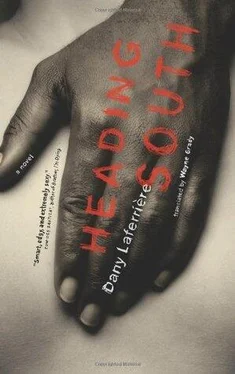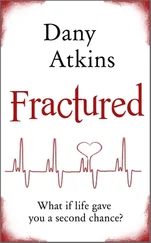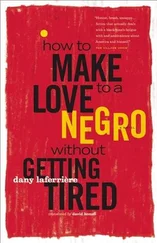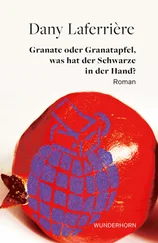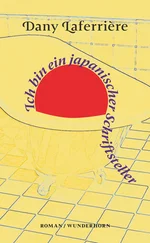I LEFT NEW YORK the next day, and have been in Haiti ever since. I lived in Port-au-Prince for a few months (I couldn’t stand the Bellevue Circle crowd for much longer, completely self-absorbed as they were; I wasn’t interested in re-creating in Port-au-Prince the artificial life I had just left behind in Manhattan), and then I met Solé, a farmer from Artibonite, and followed him here. I look after the house and our son Choual (which means “Horse”) — he’s the little blond-haired black boy playing football down there with his schoolmates— and sell the produce from our rice fields. Artibonite is in the part of the country that produces the most rice. Our rice is very aromatic. It’s the best in Haiti. If you’re ever in the region of Haiti that includes Hinche, Verrettes, Petite Rivière, Pont Sondé, Marchand-Dessalines, Saint-Marc or even Gonaïves, ask for the white farmer, and they’ll direct you to my house. My name is Laura Joseph. I’m now forty-seven years old, and I live with my husband and son in the painting of my childhood.
A Small House on the Side of the Blue Mountain
THREE DAYS AGO, Rebecca, her husband and their three children (twin girls who are ten years old and a boy who is eight) arrived in Port-au-Prince. They’re from London, where her husband runs an art gallery. Their friends call her Becky.
Becky is tall and blonde with a somewhat severe face. She has small breasts. Years ago she was a champion discus thrower.
Becky rides on the weekends on their large estate on the outskirts of London. Her family also owns vast lands in Australia and a huge house in the centre of the oldest part of London. Her father, a former officer in the Royal Navy, is also an accomplished athlete. Becky received a Spartan education. She wears jewelry only on rare occasions (a pearl necklace that her mother gave her as a wedding gift).
Everyone agrees that Becky is a good person. Stalwart, honest, old-fashioned. The typical British sporting type. She met her husband at a vernissage — she’d gone there with a woman friend — and they were married six months later. Rebecca Hunter has just turned forty, and this trip is, in some ways, a birthday present.
BECKY WANTED TO bring the children despite her mother’s insistence that she keep them with her in London.
“Becky, don’t you think John would like to have you to himself, without the children, just this once?”
“Don’t argue, Mother. I’m bringing the children. They’ll love the ocean. They’ll have the mountains and the sea.”
“Becky, perhaps I didn’t make myself clear enough: there are times when a woman simply has to be a woman.”
“What do you mean by that?”
Her mother looks her straight in the eye.
“Becky, you are forty years old, don’t pretend you don’t know what I’m talking about.”
“Of course I do, Mother. It’s just that I have no interest in being alone with John.”
The older woman seems about to run her hands over a small African statue of a man with pronounced Negroid characteristics, but changes her mind at the last minute. Her hand remains open but still, a sign of her own nervousness.
“You don’t love your husband?”
“That’s not the point, Mother.”
“He neglects you.”
“Mother, when are you going to understand that such things don’t interest me in the least?”
The mother takes several quick steps about the room before turning again to her daughter.
“You prefer women?”
“What are you talking about, Mother!”
“I know what I’m talking about. You can be frank with me.”
“No, Mother! I am not even remotely interested in women.”
“Well, then, in whom are you interested?”
“I keep busy with the children, with the horses, with visiting my friends in the country. That’s what I like doing.”
“And your husband?”
“My husband is my husband.”
“I’m going to tell you this for the last time, Becky: we women are much more complicated than you seem to think. In any case, you’ll see for yourself. .”
Becky looks at her for a moment. They are standing at the centre of the great hall in the Hunter house in London, surrounded by life-sized African statues, huge elephant tusks, some quite frightening Beninese masks, hunting trophies and magnificent warrior lances belonging to Colonel Hunter’s famous collection.
“Well, I must run, Mother. I still haven’t bought the children’s bathing suits. .”
“Bon voyage, my dear.”
“It’s only for eight days, Mother. You’ll see the kids again soon enough. I promise I’ll take good care of them.”
THE CHILDREN DIDN’T sleep for the entire flight. They were disagreeable the whole time, and Becky had to get cross with them several times. John-John wanted to go to the toilet no fewer than eight times, his revenge for having to sit still, which he hates more than he hates broccoli. Each time, Becky had to go with him. As for John, he sat reading The Economist throughout the whole flight. The twins never stopped bickering. By the time the airplane touched down in Port-au-Prince, Becky was exhausted. A bus was waiting to take them (and several other of the passengers) out of the capital, to a picturesque little village they had chosen from a tourist brochure.
“Look, Mother,” cries John-John. “The houses all look like they’re made for children.”
“No,” John mutters. “They’re made for tourists.”
“Would you please keep your cynicism to yourself, John,” Becky all but snaps at him.
“Look!” cry the twins in chorus. “The sea!”
The bus has taken a road that cuts through dark-brown land above a turquoise sea. On the opposite side of the road, a field of sugar cane stretches to the horizon. A light breeze teases dust into the air, preventing the driver from going too fast. They pass a black-clad woman walking behind a donkey.
“Look!” cries one of the twins. “A donkey!”
In the distance they can see the blue mountain. With a small house on the side.
“I could easily live here,” Becky sighs, “in that little shack.”
Her husband gives the house a brief glance.
“Not me,” he says dryly.
“I wasn’t thinking of you,” she murmurs, as though speaking to herself.
Another moment and the bus pulls up in front of a small hotel sitting lopsidedly beside the road.
“It looks like a primitive painting,” says one of the twins.
THEY UNPACK QUICKLY. The children have a light snack, and then everyone lies down for a nap. Except Becky. Oddly enough she no longer feels exhausted, despite the extraordinarily lengthy and trying trip. After long deliberation she chooses a yellow dress and a pair of white pumps in which to go exploring. The hot air hits her square in the face, but she feels fine, so far from London. The more she walks, the less tired she becomes. Suddenly she feels she could walk like this without ever stopping or retracing her steps. At a crossroads she comes upon a man who appears to be having trouble with his horse.
“May I help you?”
The man turns quickly and looks at her, this stranger, before going back to struggling with the animal.
“Let me do it,” she says in a voice that commands authority.
She takes the horse by its head and, stroking it, removes the bit that has become wedged in its mouth. It takes her at most ten seconds. The man thanks her curtly, removing his hat, then turns and lets the horse run off towards the mountain.
Becky returns to the hotel. The red sun is already half-submersed in the sea.
THE NEXT MORNING, Becky wakes before the others and goes downstairs to take her coffee before the dining room fills up. An enormous woman with a perpetually smiling face is waiting for her.
Читать дальше
